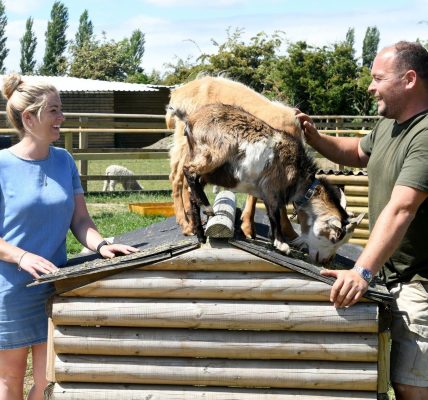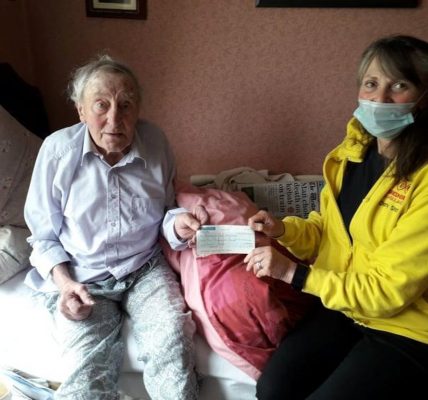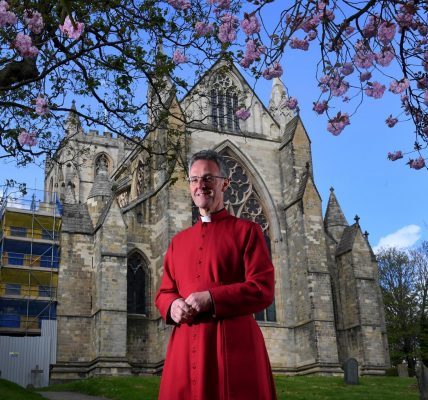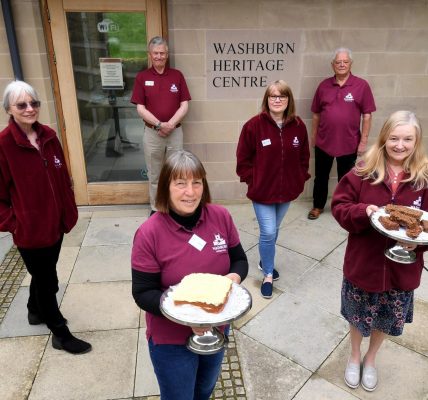How Hesketh Farm Park on the Bolton Abbey estate brings the countryside to life for children who have never seen a cow
How Hesketh Farm Park on the Bolton Abbey estate brings the countryside to life for children who have never seen a cow
A family-run farm park attraction will be opening its gates to visitors again and owner Chris Heseltine said they are looking forward to welcoming people back.
Over the 20 years Hesketh Farm Park, on the Bolton Abbey Estate, has been open to the public, it has grown into a popular attraction which aims to help people understand farming as much as it is about having fun.
Chris Heseltine is a fourth generation farmer at Hesketh House, where his great grandfather John Geoffrey Heseltine first arrived in 1926. He said the decision he and wife Sue took to open up to the pubic two decades ago has proved very rewarding and not always what he’d been expecting.
“Education of the public about farming is such a big thing,” Chris said.
“I am constantly amazed at how many people really don’t have a clue about what goes on in agriculture. During term time from now until summer we would usually have 100 schoolchildren a day.
“They are mainly from inner cities and I don’t think many of them have even stood on real grass before, let alone seen real animals. When they’ve been getting off the buses I’ve heard them point to the cows, but talk of them as being elephants.”
The 600-acre site is still a working farm run by Chris and Sue along with their son Tom.
“We are working farm with 1,100 breeding ewes, a suckler herd and a sow herd. I think it is important we show people where their meat comes from, and that is through commercial animals like ours because that is what the butcher and the consumer wants.
“We don’t have rare breeds because they are rare for a reason and that means they are not commercially viable.
“I’d rather we told the public why we and many other farmers like us are here and where their food comes from.”
Chris said it is the reaction from the children that makes the job so rewarding.
“We split the schoolchildren into groups of 20 and they all have the opportunity to feed a lamb or calf, collect eggs from the hens, cuddle the chicks and come on a trailer ride with me.
“I keep stopping to tell them more about the sheep and lambs, that they eat grass, and I explain about their wool and what it makes. The look in their eyes and their smiles are what makes it so rewarding.”
But he said, it is not just the children who benefit from their visit to the countryside.
“It’s often things we take for granted that can make all the difference to a visit for some people.
“We had one older lady who broke down in tears while bottle feeding a lamb. She said she lived in the middle of Leeds and being able to feed a lamb was something she had always wanted to do.”
The decision to open the farm to the public came on the back of conversations about the single farm payment.
“When dad died in 1996 we were doing okay,” Chris said.
“Our interest in diversification came about when the single farm payment was talked about. It was a time when suckler cows, of which we had a lot more, weren’t making any money.
“Initially, we thought about having specific farm open days at lambing time which is how Hesketh Farm Park came about.”
Lambing is almost over at the farm which means visitors will be able to see plenty of lambs. The Texel-cross and Mule ewes are run by Tom who joined Chris and Sue in the farm partnership after studying at Harper Adams and a year spent working for auctioneers Harrison & Hetherington in Carlisle.
Chris and Tom buy in month-old calves for children to feed, in addition to having their own suckler herd of 30 cows and Chris said whatever they buy is still in keeping with the cattle they have at Hesketh House.
“The herd is Belgian Blue-cross-Limousin. When I’m looking for calves I have an eye for what will work well for the farm park visitors. We rear them on to 20 months when we will sell them back through the market.”
Along with its traditional farm animals, Hesketh House also has some new additions including pygmy goats, miniature donkeys, ponies and guinea pigs. One of the more surprising residents are three giant tortoises.
“I’m not quite sure where they fit into our regime,” Chris said.
“It started by accident when a lady arrived here one day many years ago with Fluffy, a giant tortoise saying she was going on holiday and it was ours.
“Unfortunately, Fluffy is no longer with us but we now have three – George, who’s the biggest and came from Butterfly World in Lincolnshire, and Samson and Delilah who we bought from Essex through a website called Slowcoaches.”










